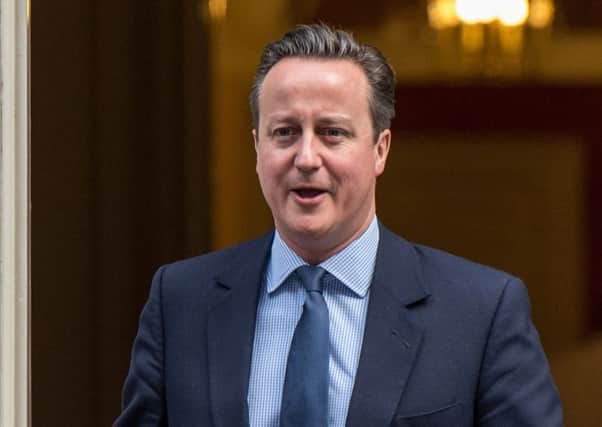Tom Peterkin: Tories and SNP find common ground on tax


“Labour’s great plan”, the Prime Minister said, was to “put up income tax on hard-working people in Scotland.”
Getting into his stride, Cameron asked: “What are Labour going to do to radiographers in Scotland?”
Advertisement
Hide AdAdvertisement
Hide Ad“Put up their taxes,” was his answer to his own question. “What are they going to do to nurses in Scotland? Put up their taxes. What are they going to do to dentists in Scotland? Put up their taxes.”
Having demonstrated his grasp of a certain type of repetitive, rhetorical device, Cameron added: “We now know Labour’s plan – higher taxes for more welfare. They have learned nothing in the last decade.”
The Prime Minister’s outburst delighted Scottish Conservative strategists, who are pleased that a clear policy divide is being drawn between their party and Labour’s plans to mitigate devastating budget cuts by raising tax.
As the May election approaches, the Scottish Conservatives are deploying a three-pronged attack in an attempt to win support at the expense of Labour. The first prong is based on the Conservatives’ recently published tax commission, which formalises the party’s ambition to cut taxes and underlines the contrast in economic ideology with Labour. The second is the Tory party’s attempt to position itself as the most vociferous defender of the Union – a tactic designed to win over No voting Labourites. Thirdly, Conservative strategists talk of holding the SNP to account in a way that undermines Labour’s role as the main opposition.
Just how successful this approach proves to be will not be known until after the 5 May votes are counted. But candidates claim potential voters respond well to the idea that getting a few more Tories to Holyrood will guard against tax rises. The other party expressing glee at Labour’s income tax proposals is the SNP. It was difficult to wipe the smile off SNP spinners’ faces when the “penny for Scotland” proposals were announced. Bitter experience of the first Scottish election of 1999 – which saw the Nationalists propose raising the Tartan Tax – tells them that putting up taxes is a hard sell.
Cynics could be forgiven for thinking that all the recent talk of progressive taxation from John Swinney is typical of the SNP’s ability to talk itself up as a left wing party while pursuing the politics of the right. Indeed, echoes of Cameron could be heard in the Holyrood chamber yesterday afternoon when the finance secretary recited his own list of workers. Swinney said the “last thing” he intended to do was put up the income taxes of “newly-qualified teachers, police officers, firefighters, postal staff, bus drivers, charity workers and shop workers”.
Despite its constant clamour for more powers, the SNP seems curiously reluctant to rock the boat by actually using the levers already coming the way of the parliament. Why rock the boat when Nicola Sturgeon’s party is in the enviable position of enjoying a surge from voters who could be distracted from the cause by an unpopular talk of a tax hike. Labour faces a huge challenge to convince these rock solid SNP supporters that cutting their pay packets to pay for public services is a price worth paying.